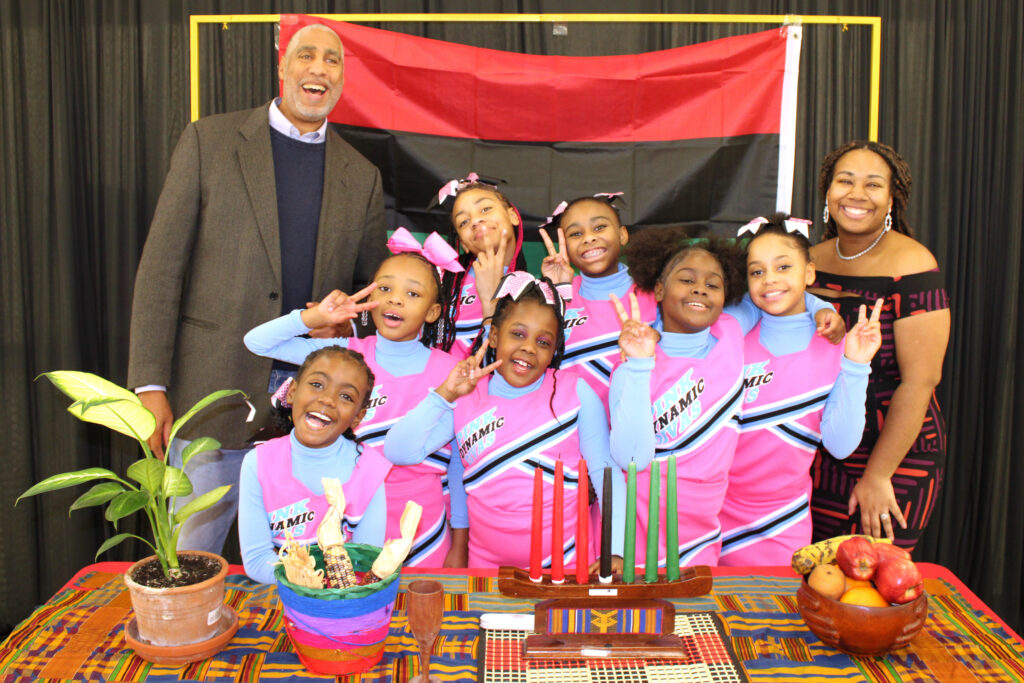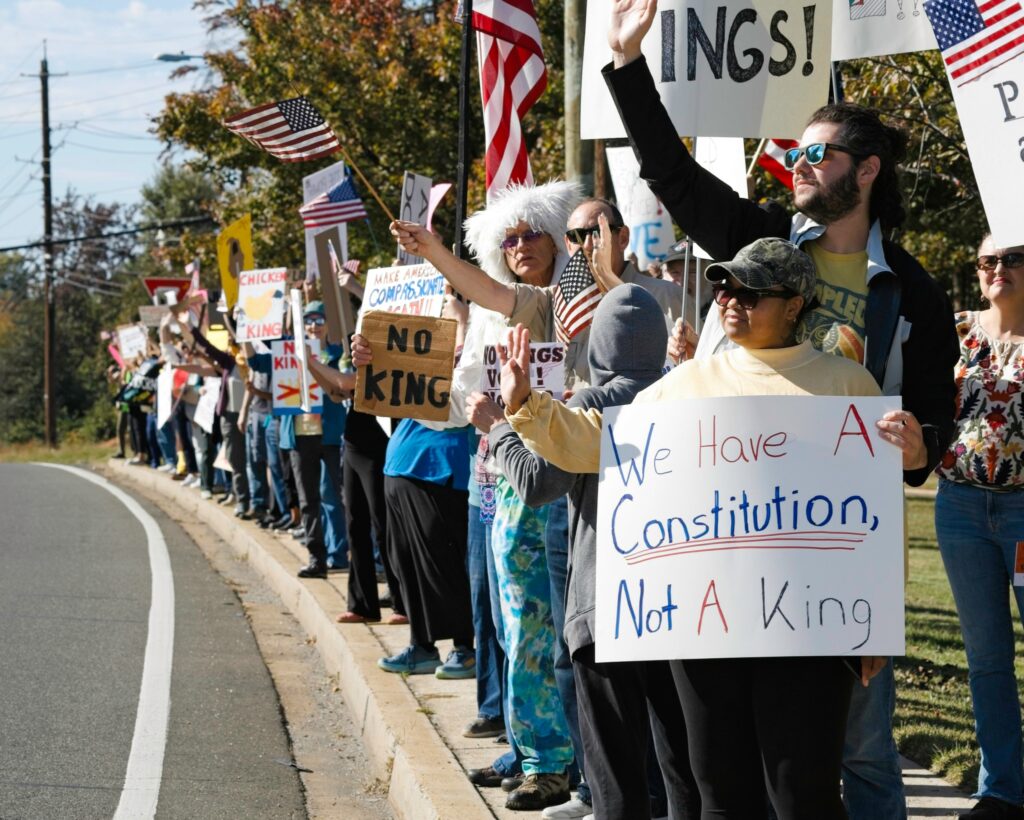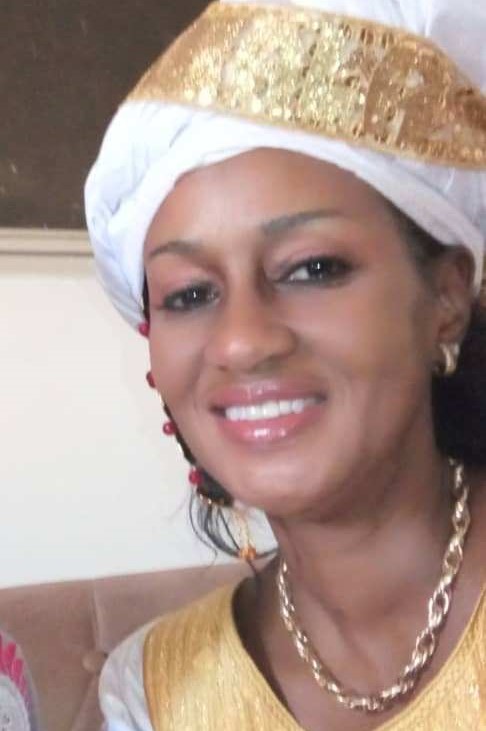Delicious food, dynamic, informative, fun and uplifting: these are some of the comments stated about the Kwanzaa Karamu held on Saturday, December 30. The event was organized by Chiquita Jackson Enterprises in collaboration with the Greenbelt Black History and Culture Committee, RUAK, The SPACE and Beltway Plaza. There were 60 participants, including children of various ages. County Councilmember Ingrid Watson was the primary sponsor of the event and there was additional assistance from the Greenbelt Recreation Department.
Program
Chiquita Jackson, president of Chiquita Jackson Enterprises, hosted the program. She thanked the audience for attending and called on Mayor Emmett Jordan to welcome attendees. He thanked Jackson and the community group coalition that helped arrange the event. Dr. Lois Rosado explained the purpose of Kwanzaa (which means first fruits or first harvest) and that it was part of the harvest ceremonies in many African societies. Dr. Maulana Karenga, born in Parsonsburg, Md., studied the cultural traditions of Swahili-speaking societies and adapted some of their traditions for African Americans and members of the African Diaspora. Kwanzaa is celebrated worldwide.
Rosado described the symbols of Kwanzaa. The Pan-African flag was designed by the United Negro Improvement Association, founded by Marcus Garvey; the red, green and black colors have been adopted in the flags of several African nations. The Kinara holds the seven candles called the Nguzo Saba, representing the principles and values of Kwanzaa, which begins on December 26 and ends on January 1. Other symbols include a mat representing history and tradition, fruits representing the harvest and ears of corn for the number of children in a given family. A moment of silence was held to honor the memory of the late Greenbelt City Councilmember Ric Gordon, and next a Libation ceremony was performed to remember and thank ancestors for their sacrifice and determination to survive enslavement, discrimination and lost opportunities because of systemic racism.
Principles of Kwanzaa
Joe Parks, of the Greenbelt Black History and Culture Committee, explained that the seven principles are designed to build relationships in a community and several are reflective of Greenbelt: 1) Umoja – unity within the family and within the community; 2) Kujichagulia or self-determination – defining ourselves and our interests and not letting others define our interest and needs; 3) Ujima – collective work and responsibility by working together to solve community issues; 4) Ujamaa – Cooperative economics, helping to build wealth within the community; 5) Nia or purpose – determining our personal goals, developing and sharing our skills to build local and nation communities; 6) Kuumba – creativity, fostering innovation in the arts, music and industry; and 7) Imani – faith in ourselves, in our people and in our community. As Parks named each principle, a child from the audience came up and helped light a candle.
Dan Gillotte, manager of the Greenbelt Co-op Supermarket, identified Umoja, Kujichagulia, Ujima and Ujamaa as Kwanzaa principles that align with the Co-op’s purpose and values in a recent membership letter. Kwanzaa principles are universal and relatable to everyone.
Supportive Organizations
Jackson shared information about her nonprofit organization whose purpose is to be a poverty disruptor and to organize at-risk youth through mentoring, athletic pursuits and counseling. Carolyn Lambright-Davis, an active Greenbelt resident, shared the history of the Greenbelt Black History and Culture Committee and invited attendees to join. RUAK provided free books for children to take. The books represented zawadi – what gifts are called in the celebration.
Rev. Ray Raysor blessed the food.
Activities
Lambright-Davis led an exciting game of Kwanzaa Bingo and Rosado led a Black History game that was more conversational then competitive. Some folks danced and some children played with the toys available in The SPACE. The program was a positive way to end the year and begin a new one.



